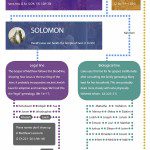The bottom line is that our interpretation of Scripture needs to coincide with actual reality. – Derek Flood
I’ve recently been digging into Derek Flood’s new book Disarming Scripture, and it is a desperately needed word in the raging public dialogue around Christianity and violence.
Really, it’s a splash of cold water to the face of our biblical rationalizing when it comes to violent and disturbing passages.
The quote above appears in Chapter 6, and this chapter is perhaps the lynchpin upon which Derek’s argument in favor of disarming the violent passages of scripture turns. In it, we are presented with a trajectory hermeneutic, a way of interpreting the New Testament in particular that does not treat it as an authoritative text “frozen in time.” That statement is likely challenging enough in itself; but to see Derek work out this concept over the course of the chapter and the book is almost shocking. His endeavor is to leave no violent stone unturned – to face the facts, and the music, with a kind of brutal biblical honesty.
I remember sitting in the pew at my Reformed Baptist church as the senior pastor preached through a New Testament passage about slaves and masters. He is proudly a “full counsel of God” kind of fellow with a determined desire to give total assent to every word of Scripture in its “plain meaning.” But I could tell this one wasn’t easy for him. Nonetheless, at the conclusion of his sermon he stated forcefully, “We cannot say, based on Scripture’s own testimony, that slavery in itself is wrong. It is wrong when masters mistreat their slaves, but the institution of slavery is not wrong.” The man is not a racist in a personal sense (though his position is certainly racist); this is simply where his hermeneutic took him.
Flood confronts this hermeneutical dilemma head on in the present chapter, especially when it comes to slavery and corporal punishment. With unflinching honesty he looks at how both scripture and church history have held onto obviously harmful ideas and practices in the name of biblical fidelity. And, he reveals how both our innate conscience and scientific/psychiatric learning witness against these ideas, creating the choice my old pastor faced that morning, to go with what seems right or to go with the “plain meaning” of scripture. (Indeed, most Christians, even conservative ones, go against this plain meaning in their ethical choices against slavery or ancient child beating.) Finally, Derek offers a way forward on the basis of trajectory, what William Webb calls a “redemptive movement hermeneutic”, so that even the New Testament is not the “final word” on matters of ethics. Instead, we may move forward as followers of Jesus into practices like MLK’s large-scale nonviolence:
Jesus would have rejoiced to see this, because a good teacher always rejoices to see their students going beyond where they have gone. Jesus says this himself, “Very truly I tell you, whoever believes in me will do the works I have been doing, and they will do even greater things than these.”
 What I’m most grateful for in this chapter, however, is Derek’s grappling with the anabaptist-y “Jesus-centered” hermeneutic – a perspective I hold pretty near and dear. He is clearly Jesus-centered in his approach, seeing Jesus’s radical politic of forgiveness and enemy-love as an interpretive guide, but he continues to be honest about how using Jesus and the Gospels as a frozen in time ethic is problematic. Instead of getting frozen, Flood suggests “reading the Bible like Jesus did” and evaluating each biblical ethic based on its merits, according to its fruit. He says, “that’s what having the ‘mind of Christ’ is all about.” Whoa!
What I’m most grateful for in this chapter, however, is Derek’s grappling with the anabaptist-y “Jesus-centered” hermeneutic – a perspective I hold pretty near and dear. He is clearly Jesus-centered in his approach, seeing Jesus’s radical politic of forgiveness and enemy-love as an interpretive guide, but he continues to be honest about how using Jesus and the Gospels as a frozen in time ethic is problematic. Instead of getting frozen, Flood suggests “reading the Bible like Jesus did” and evaluating each biblical ethic based on its merits, according to its fruit. He says, “that’s what having the ‘mind of Christ’ is all about.” Whoa!
This is precisely how we become more Jesus centered in the first place: “We can taste and see that the way of grace, compassion, and enemy love is life-giving and good, and likewise we can equally observe the many ways that fear and violence are deeply harmful. To put it bluntly: Grace is amazing, and genocide, slavery, and child abuse are not.”
I so appreciate Derek’s strong application of a trajectory hermeneutic to the way the church treats LGBT people. It is, in many ways, the ethical debate that will determine how we faithfully approach the scriptures in the next thousand years. Will we treat the text as frozen or read it on a redemptive trajectory?
A splash of cold water indeed.
We would do well to heed the author’s conclusion to the chapter:
It certainly would be easier if we could just flip open to a certain page and find the right answer in our Bibles. But, unless we want to endorse slavery and child abuse today, we need to face the fact that the New Testament is simply not that kind of book. What we find instead is a radical and life-giving message of grace and enemy love that still remains surprising, subversive, and counter-cultural some 2000 years later.













